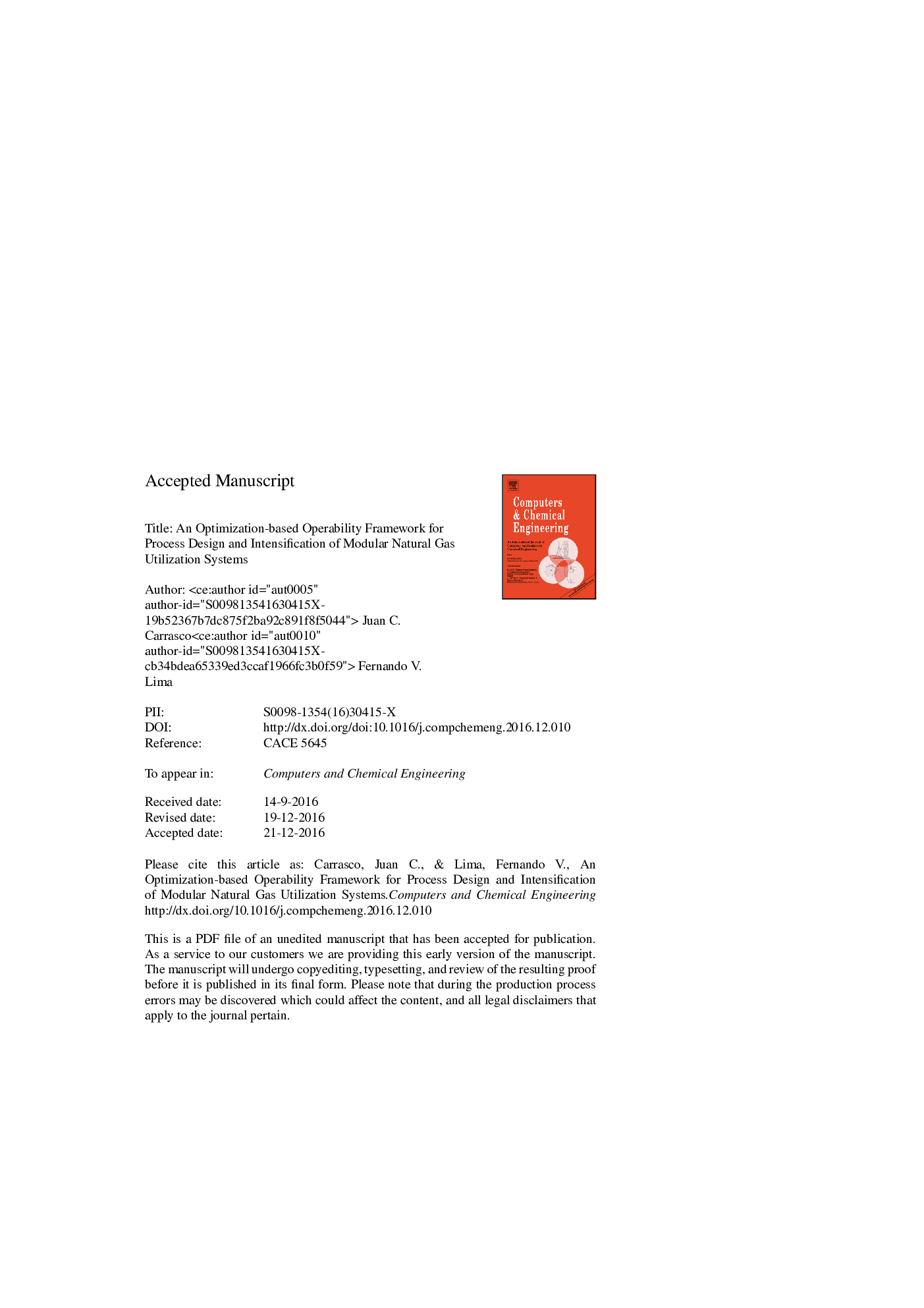| Article ID | Journal | Published Year | Pages | File Type |
|---|---|---|---|---|
| 4764627 | Computers & Chemical Engineering | 2017 | 38 Pages |
Abstract
This paper introduces a novel operability-based framework for process design and intensification of modular systems. This framework is based on nonlinear programming concepts, including bilevel optimization, and extends the application domain of classical operability approaches to process simulator runs (Aspen Plus) for obtaining the relationship between input and output spaces, in addition to first-principles models. As potential modular applications of the proposed approach, a catalytic membrane reactor (MR) for the direct methane aromatization (DMA) conversion to fuels and chemicals, and a natural gas combined cycle (NGCC) system for power generation, are addressed. These applications are especially motivated by the advent of the shale gas revolution that allowed the recent discovery of stranded shale/natural gas deposits at different shale formations in the U.S. The utilization of such deposits could be capitalized by employing modular technologies for the production of power, value-added chemicals and fuels at the site. However, the design and intensification of modular energy systems is a challenging task as these processes are represented by complex and nonlinear models. The obtained results indicate that the proposed framework has the potential to accelerate the realization of the concept of modular manufacturing with reduced footprint and maximized efficiency, resulting in future cost savings. In particular for the NGCC process, the results provide the gas and steam turbine cycle conditions that could enable modular plants that are about three orders of magnitude smaller in terms of power generation than typical operating processes.
Related Topics
Physical Sciences and Engineering
Chemical Engineering
Chemical Engineering (General)
Authors
Juan C. Carrasco, Fernando V. Lima,
